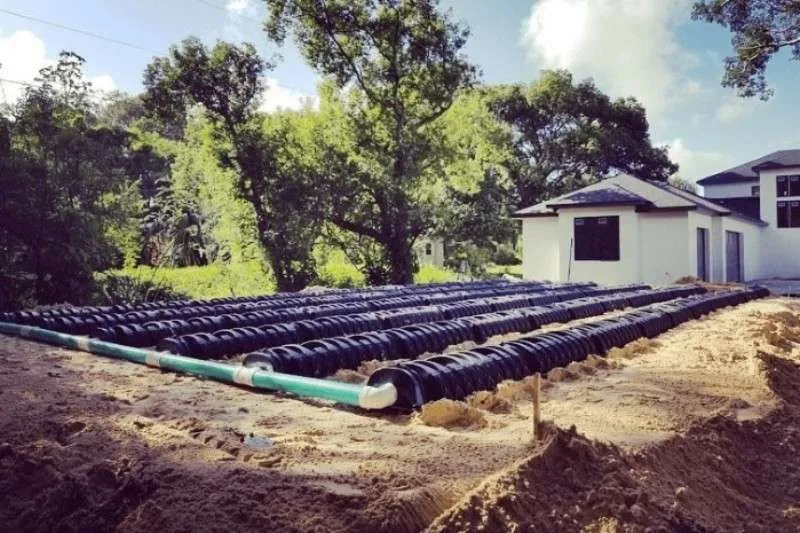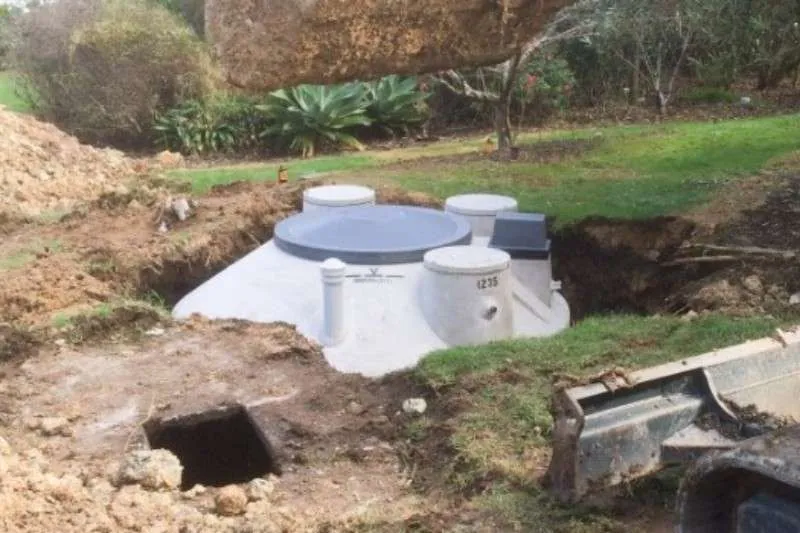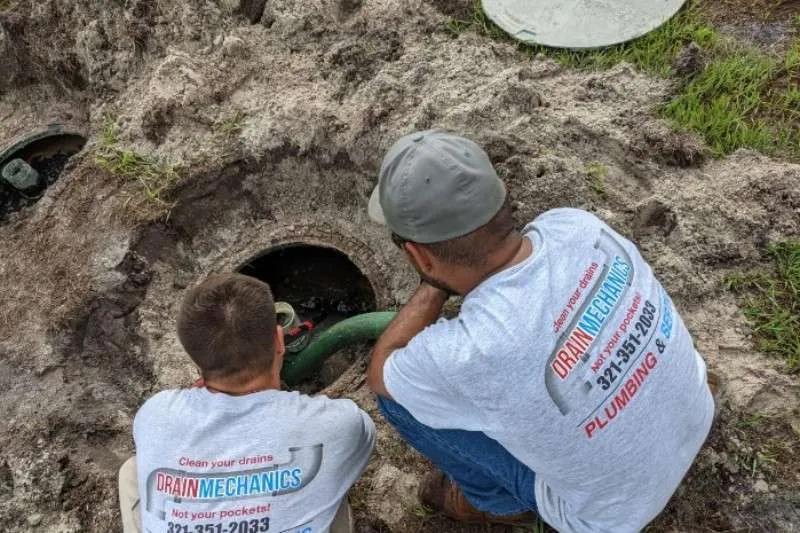Are you a homeowner wanting to ensure your septic system is maintained properly? Knowing what do’s and don’ts come with owning one is important as a septic system owner. Whether you are new to septic systems or need a refresher course on proper maintenance habits, this blog post will help guide you through common myths surrounding septic systems and how best to preserve their long-term health.
This informative article will explain everything from preventive measures for typical wear and tear tips for troubleshooting any issues that may arise, as well as listing out everyday items that should be avoided when using your home’s septic system. Read on to ensure your investment will last.
Introduction to the septic system do’s and don’ts.
The septic system is an important part of a home or any other building with plumbing and sanitation. The septic system can provide years of efficient service with proper maintenance and care. It’s important to be aware of the do’s and don’ts when caring for your septic system to avoid costly repairs and poor performance.
The importance of proper septic system care and maintenance cannot be overstated. An improperly maintained system can lead to various serious problems, including backups, overflows, and other environmental hazards. Additionally, it’s important to understand how your septic system works so that you can identify any potential issues before they become major concerns.
Common mistakes with septic tanks include not pumping them out when required, flushing materials that aren’t compatible with the system, using too much water at once, and emptying hazardous products into the septic tank’s bottom. Knowing what can and cannot be put in a septic tank is vital to keep it running well. Additionally, it’s important to regularly inspect your system and catch any potential problems early on.
Best practices for septic system owners include avoiding flushing anything other than human waste and toilet paper, using garbage disposal, limiting water usage in the home, and having regular inspections. Additionally, it’s wise to have a maintenance plan in place so that you will remember when to pump out your tank, inspect it, and make any necessary repairs.
By following these septic system dos and don’ts, you can be sure that your home or building has a properly functioning septic system that will continue to serve its purpose for years.
The septic system do’s

Inspections and maintenance of your septic system are essential to ensure it functions properly. The frequency of these inspections depends on several factors, such as age, size, and type of the system. Local health authorities can help you determine what kind of inspection schedule is best for your system.
Water conservation and efficiency are also important for septic system maintenance. Ensure you’re not overloading your system with excess water usage by opting for low-flow fixtures, fixing leaky faucets and toilets, and limiting water flow to the number of people using the system at any time.
Proper waste disposal practices are essential for keeping your septic system functioning properly. Avoid disposing of anything other than human waste, toilet paper, and biodegradable soaps and detergents in your septic system. Additionally, you should not flush materials not designed to break down in the water, such as trash such as cigarette butts or cotton swabs.
When landscaping around the area of your septic system, ensure you consider the safety and functionality of the system. Avoid building structures or planting trees that could damage your septic system and create an uneven ground surface. Additionally, you should avoid diverting water run-off drainage towards your septic tank, as this can increase the chances of it becoming flooded.
Following these simple dos and don’ts can help ensure your septic system functions properly and lasts long. Proper system maintenance is essential to its longevity, so be sure to check with local health authorities for any additional information regarding inspections and maintenance of your septic system.
Septic system don’ts
It is important to remember that your septic system needs special care and attention, as it serves an important purpose in your home. With this in mind, here are some septic system don’ts that should be avoided:
- Flushing inappropriate materials: Items such as feminine hygiene products, diapers, and wipes should never be flushed down the toilet. These materials can cause clogs in the pipes and seriously damage your septic system.
- Using harsh chemicals and cleaning products: Harsh chemical cleaners, bleaches, petroleum-based substances, and other chemicals can kill off beneficial bacteria that are essential for the proper treatment of wastewater in a septic system.
- Overloading the system with water or waste: Excessive use of water or wastewater can overwhelm your septic system and cause it to fail. This includes using large amounts of laundry detergent, running multiple showers simultaneously, and leaving taps running without need.
- Ignoring signs of septic system problems: If you notice any signs that your septic system might have problems, such as slow drainage or odors coming from the pipes, it is important to address these issues as soon as possible. Ignoring the problem could result in serious damage and costly repairs for your system.
Preventative measures for septic system health
Prevention is the best way to keep a septic system in good order. To maintain your septic system, some simple preventative measures should be taken:
• Schedule regular septic tank pumping at least every 3-5 years by a professional and licensed septic service provider.
• Perform routine maintenance on the system, such as checking for any potential issues or backups.
• Inspect inlet and outlet pipes for blockages, damage, or other problems.
• Ensure that the area around the septic tank is properly graded to avoid pooling water near the septic tank size.
• Maintain a record of all maintenance and pumping services performed on the system.
If any potential issues or problems arise with the septic system, address them immediately. Ignoring these issues can lead to long-term damage and costly repairs. If you are unsure how to identify or repair an issue, contact a professional and licensed septic service provider for assistance.
The consequences of neglecting septic system do’s and don’ts.

Neglecting a septic system’s dos and don’ts can have serious consequences. Without proper maintenance, your septic system could be in danger of failure or malfunction, which can potentially cause damage to your property and surrounding environment and lead to costly repairs or replacements.
Furthermore, your septic system can be a serious health hazard if not properly cared for. Sewage backups can contaminate the environment and allow bacteria and viruses to spread, causing illness and diseases. In addition, leaking septic tanks can damage groundwater sources that supply drinking water, leading to contamination of the water supply, which can cause further health problems.
The costs associated with repairing or replacing a septic system can be substantial. Repairing or replacing leaking tanks and pumps, damaged drain fields, and other components can quickly add up to thousands of dollars. Furthermore, depending on the extent of the damage, restoring the environment around your property may require additional costs for clean-up and removal of hazardous materials.
It’s important to be aware of the potential consequences of neglecting septic system dos and don’ts. Taking preventive measures by adhering to proper maintenance procedures, such as pumping your tank regularly, can help avoid costly repairs or replacements and save you from potentially harmful environmental and health risks.
FAQs
What are the most important do’s and don’ts for maintaining my septic system?
The most important do’s and don’ts for maintaining your septic system include: Overloading the system with water or waste, Ignoring signs of septic system problems, Scheduling regular tank pumping, Performing routine maintenance, Inspecting inlet and outlet pipes regularly, Maintaining a record of all maintenance and pumping services, Preventing pooling water near your septic tank.
How often should I have my septic system inspected and maintained?
Your septic system should be inspected and serviced by a professional at least once every three to five years. Additionally, routine maintenance should be performed on the system regularly, such as checking for any potential issues or backups.
What are the consequences of not following septic system best practices?
The consequences of not following septic system best practices can include costly repairs or replacements, environmental damage, contamination of the water supply, and health risks.
Can I use garbage disposals with a septic system?
Using garbage disposals with a septic system is not recommended as they can increase the number of solids entering the system and potentially lead to clogs or backups. Additionally, many types of food waste should never enter a septic system or solids waste, such as fats, oils, grease, and other non-biodegradable materials.
How can I educate my family on proper septic system care?
Educating your family on proper septic system care is important in keeping your system functioning properly. Ensure everyone knows what can and cannot be put into the septic tank, such as oil, grease, fats, and harsh chemicals.
Are there any specific do’s and don’ts for maintaining my drain field?
There are specific do’s and don’ts for maintaining your drain field. These include avoiding vehicles or heavy items on top of the surface water or drain field, preventing water runoff into the area, planting trees or shrubs near the drain field, and not putting chemicals in the septic tank.
Can I flush medications or personal care products down the toilet with a septic system?
No flushing medications or personal care products down the toilet is not recommended for a septic system. These items can damage and mine soil and contaminate drinking water sources. You should always dispose of these products through proper channels, such as your local pharmacy or hazardous waste collection facility.
How can I tell if my septic system is functioning properly?
Some signs that your septic system may not function properly include pooling water near the tank, slow or clogged drains, foul odors around the tank, and backups in toilets or sinks. If you experience any of these issues, contacting a professional for inspection and servicing is recommended.
Conclusion
In conclusion, septic systems provide a unique wastewater management solution when you’re off the grid. With regular inspections, routine cleaning and maintenance, and attention to certain Do’s and Don’t’s, you can ensure your system remains clear of any issues and lasts many years. Now that you have all the insider tips, it’s time to ensure your septic system stays in proper working order.


